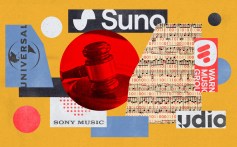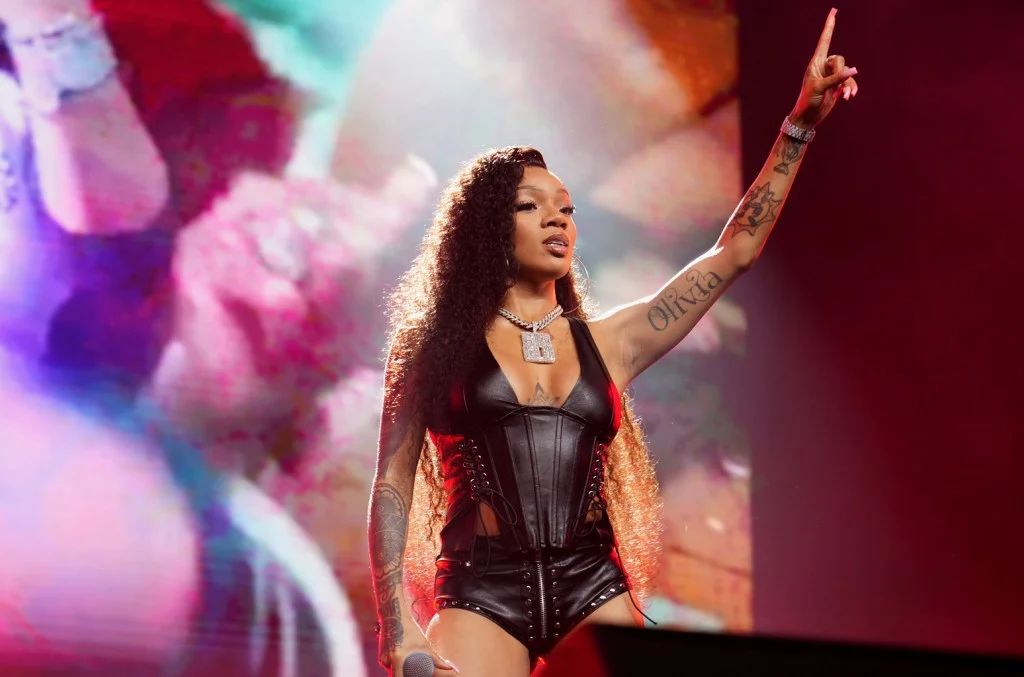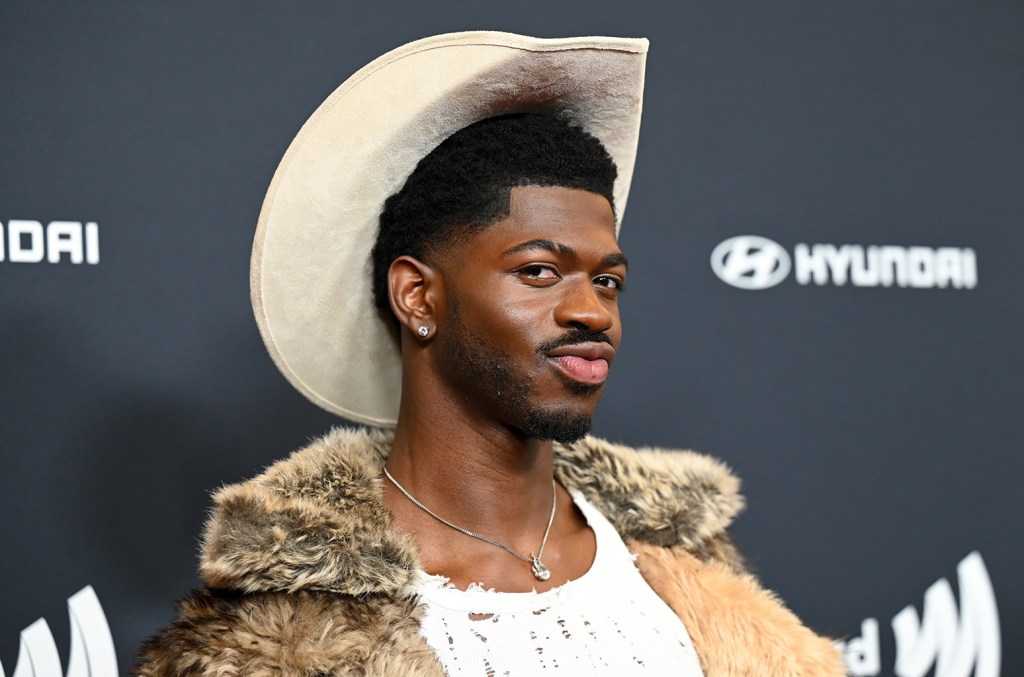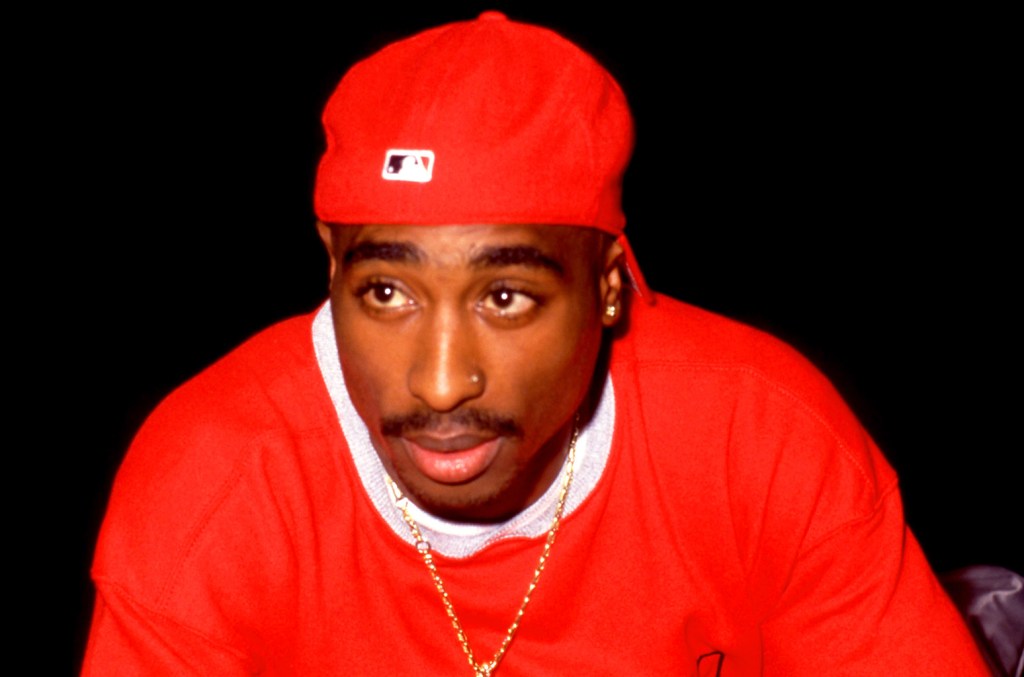Copyright
Page: 2
Trending on Billboard
THE BIG NEWS: Universal Music Group and artificial intelligence music service Udio reached a landmark agreement last week to end their lawsuit – the first major settlement in the battle over the future of AI music. Here’s everything you need to know.
The deal, announced Wednesday, will end UMG’s allegations that Udio broke the law by training its AI models on vast troves of copyrighted songs — an accusation made in dozens of other lawsuits filed against booming AI firms by book authors, news outlets, movie studios and visual artists. The agreement involves both a “compensatory” settlement for past sins and an ongoing partnership for a new, more limited subscription AI service that pays fees to UMG and its artists.
Related
-The agreement is much more than a legal settlement, Udio CEO Andrew Sanchez told Billboard’s Kristin Robinson in a detailed question-and-answer session just hours after the news broke: “We’re making a new market here, which we think is an enormous one.”
-The deal between UMG and Udio will resolve their legal battle, but broader litigation involving rival AI firm Suno and both Sony Music and Warner Music is still very much pending. Are more settlements coming? Does the deal impact the case? Go read my look-ahead analysis of the ongoing court battle.
-Will AI do more harm than good for the music business? That’s the question Billboard’s Glenn Peoples is asking – and financial analysts don’t have a clear answer. Some believe AI’s negatives outweigh its positives, while others see mostly upside. Maybe it’s just too early to know, Glenn says: “In the near term, expect more deals like UMG’s partnership with Udio. Over the long term, expect to be surprised.”
-Artist advocates are already demanding answers about how exactly this whole thing will work. According to the Music Artists Coalition, talk of “partnership” and “consent” are all well and good, but details are what matter: “We have to make sure it doesn’t come at the expense of the people who actually create the music,” MAC founder Irving Azoff said.
Related
-To put it lightly, Udio subscribers were not big fans of the settlement, which saw the company immediately disable downloads – even for songs that users created long before the deal was reached. After two days of outrage and threats of legal action, Udio said it would open a 48-hour window for users to download their songs. But with wholesale changes to the platform coming soon, will that be enough to satisfy them?
You’re reading The Legal Beat, a weekly newsletter about music law from Billboard Pro, offering you a one-stop cheat sheet of big new cases, important rulings and all the fun stuff in between. To get the newsletter in your inbox every Tuesday, go subscribe here.
Other top stories this week…
AINT OVER YET – Drake is now formally appealing last month’s court ruling that dismissed his defamation lawsuit against Universal Music Group (UMG) over Kendrick Lamar’s diss track “Not Like Us,” prolonging a messy legal drama that has captivated the music industry and, at times, drawn ridicule in the hip-hop world.
DIDDY APPEAL – Sean “Diddy” Combs is appealing too – and he’ll get a fast-track process to do it. With such cases sometimes lasting years, his lawyers argued that he could be nearly finished with his three-ish year prison sentence by the time an appellate court rules on his prostitution convictions.
Related
POT SHOTS – Offset is facing a new civil assault lawsuit claiming he punched a security guard in the face at a cannabis dispensary in Los Angeles after being asked to show his I.D., sending the staffer to the emergency room.
MASSIVE FINE – Fugees rapper Pras Michel must forfeit a whopping $64 million to the government following his conviction on illegal foreign lobbying and conspiracy charges, a federal judge says, overruling his protests that it’s “grossly disproportionate.”
DRAKE SUED – Drake and internet personality Adin Ross are facing a class action accusing them of using “deceptive, fraudulent and unfair” practices to promote online sweepstake casino Stake and “encourage impressionable users to gamble,” including using house money to do it.
DRAKE NOT SUED – Another class action, this one against Spotify, claims that the platform has turned a “blind eye” to streaming fraud and allowed billions of fake plays. It alleges that Drake is one of the most-boosted artists, but the rapper is not named as a defendant nor accused of wrongdoing.
Related
FAIR TRADE? Cam’ron is suing J. Cole over allegations he reneged on a deal to swap featured credits – claiming he provided a verse for Cole’s “Ready ’24” but that Cole repeatedly declined to do the same, or even appear on Killa Cam’s podcast.
CUSTODY TRUCE – Halle Bailey and DDG temporarily agreed to share custody of their son and drop domestic violence claims against each other, putting a halt to the musicians’ messy legal battle after months of back and forth.
NEWJEANS, SAME LABEL – A Korean court issued a ruling rejecting NewJeans’ attempt to break away from its label ADOR, dealing a major victory to the HYBE subsidiary in its closely-watched legal battle with the chart-topping K-pop group.
DEPOSITION DRAMA – A judge says Tory Lanez must sit for a deposition in litigation stemming from his alleged shooting of Megan Thee Stallion in 2020. The case was filed by Megan against gossip blogger Milagro Gramz, who she claims spread falsehoods about the shooting.
NOT VERY CASH MONEY – Former Hot Boys member Turk is being sued by a concert promoter over online threats that supposedly threatened to derail a Cash Money Records reunion tour featuring Birdman and Juvenile
UGLY DIVORCE – Sia and her estranged husband are fighting over custody of their child amid divorce proceedings — and the crossfire is getting ugly. Among other claims, he says the pop star is a drug addict who can’t care for a baby, and she says he was investigated over child pornography.
Trending on Billboard Danish rights organization Koda has filed a lawsuit against AI music company Suno, alleging that it infringed on copyrighted works from its repertoire — including songs by Aqua, MØ and Christopher. Koda claims that Suno used these works to train its AI models without permission and has concealed the scope of what […]
GloRilla is facing a copyright lawsuit from a social media personality who says the rapper stole her viral catchphrase — “all natural, no BBL” — and used it in her 2024 song “Never Find” without permission.
Natalie Henderson — aka @slimdabodylast on Instagram — says she went viral last year with the phrase, seemingly a reference to not needing a “Brazilian butt lift” cosmetic surgery. She says she then turned it into a song with lyrics including “All natural, no BBL/ Mad hoes go to hell.”
In a case filed Wednesday (June 20) in Louisiana federal court, Henderson claims that GloRilla (Gloria Woods) violated federal copyright law by copying those lyrics into her 2024 track “Never Find,” which features the line: “Natural, no BBL/ but I’m still gon’ give him hell.”
Trending on Billboard
“There are unmistakable similarities between the two works,” Henderson’s attorney writes. “Based upon a side-by-side comparison of the two songs, a layperson could hear similarities in the lyrics, arrangement, melody, core expression, content, and other compositional elements in both songs and conclude that songs are essentially identical.”
“Never Find,” featuring K Carbon, was featured on GloRilla’s debut studio album Glorious, which peaked at No. 5 on the Billboard 200 and ended up as the top-selling female rap album last year. The song itself, a bonus track, did not chart.
It’s unclear whether the copying of such a small snippet of words amounts to infringement. Copyright law does not cover short phrases, including slogans and taglines, nor does it cover commonplace material that’s been widely used by others. Whether the allegations against GloRilla clear those thresholds will be decided by a federal judge.
A rep for GloRilla did not immediately return a request for comment.
This isn’t the star’s first tangle with copyright law. Back in 2023, GloRilla was hit with a lawsuit claiming she used unlicensed samples from a decades-old New Orleans hip-hop song in her hit songs “Tomorrow” and “Tomorrow 2.” The case was dismissed last year.
In November, the rapper Plies sued her, along with Megan Thee Stallion, Cardi B and others, over claims that the 2024 song “Wanna Be” featured an uncleared sample from his 2008 track “Me & My Goons.” But the case was voluntarily dropped in March.
Karol G and Universal Music Group (UMG) are firing back at a copyright lawsuit over a track from her chart-topping Mañana Será Bonito – including arguing that a producer’s Instagram comment about the alleged similarities was posted “sarcastically” and wasn’t an admission of guilt.
The case, filed earlier this year, claims that the singer (Carolina Giraldo Navarro) and her co-writers stole key elements of her 2022 song “Gatúbela” from an earlier track called “Punto G,” released by producers Ocean Vibes (Jack Hernandez) and Alfr3d Beats (Dick Alfredo Caballero Rodriguez).
But in their first response to the case on Tuesday, Karol G and Universal Music Group flatly denied all of the lawsuit’s allegations. They said a musicologist report cited by the accusers, which claimed the songs were “extremely similar,” was “biased” and “patently improper.”
Trending on Billboard
“Defendants deny that they have interpolated, sampled, used, or copied plaintiffs’ work,” the Colombian star’s lawyers write. They also say they’ll be able to prove that “Gatúbela” was “independently created,” which could mean they have evidence that Karol G’s song was actually created first.
Released in February 2023, Mañana Será Bonito was a critical and commercial success, winning album of the year at the Latin Grammy Awards and reaching No. 1 on the Billboard 200 — the first all-Spanish language album by a woman to do so. “Gatúbela” was a hit in its own right, reaching No. 37 on the Billboard Hot 100 and No. 4 on the Hot Latin Songs chart.
Hernandez and Rodriguez sued in March, claiming they “immediately recognized” the song’s similarities to “Punto G,” which they say was released two months earlier: “By every method of analysis, ‘Gatúbela’ is a forgery.”
In one passage, the lawsuit cited an Instagram exchange in which Alfr3d confronted one of Karol’s producers (DJ Maff) over the alleged similarities. In screenshots in the complaint, Maff responded by commenting “don’t tell anybody,” followed by a laughing emoji. The accusers claimed this meant he had “shockingly admitted” to stealing their song.But in Tuesday’s response, attorneys for Karol G and the other defendants said the Instagram exchange had been taken out of context – and that a joking social media post was hardly an admission of copyright infringement.
“Defendants admit that DJ Maff promoted ‘Gatúbela’ in an Instagram post dated August 26, 2022 and that DJ Maff sarcastically posted the comment appearing in the screen shot,” write Karol’s defense attorneys. “Defendants otherwise deny the allegations contained in paragraph 4 of the Complaint, including Plaintiff’s characterization of DJ Maff’s Instagram comment.”
The case over “Gatúbela” is still in the earliest stages. Karol G and UMG will likely soon file a motion to dismiss the case entirely, after which Hernandez and Rodriguez will respond. The judge will then decide if the case can move forward toward an eventual trial.
In a statement to Billboard, an attorney for the accusers said the complaint filed in March “speaks for itself” and reiterated its allegations: “At the end of the day, we believe that artists and producers should be properly credited with and compensated for the works that they create,” said Chester R. Ostrowski. “That is all plaintiffs are looking for in this case, and they eagerly await their day in court.”
Two weeks ago, on May 8, the Trump Administration dismissed Librarian of Congress Carla Hayden; then, two days later, Register of Copyrights Shira Perlmutter, alarming rightsholders that the White House would try to make it easier for AI companies to train their software on unlicensed copyrighted material.
The Trump Administration hasn’t said much about this, and the situation has only become weirder. The following week (May 12), Wired reported that two Trump appointees were blocked from entering the Copyright Office, and left voluntarily after Library of Congress staffers contacted the Capitol Police. As recently as January 2024, remember, the New York Times referred to the agency — erroneously and rather obnoxiously — as “the sleepy Copyright Office.”
Now, amid disagreements about the process to replace Hayden and Perlmutter, the latter, who is on administrative leave, just filed a lawsuit (on May 22) claiming that the Trump Administration has no right to replace Hayden or dismiss her, and asking for an injunction to restore her role as Register. At the same time, the Trump Administration’s “Big, Beautiful Bill,” which passed the House of Representatives on May 22, contains language that would drastically limit enforcement of state-level AI regulations, including those that would protect artists’ name, image and likeness rights. If the bill passes the Senate intact, assuming the federal government has the power to limit state laws without making its own, this would represent a serious giveaway to the technology sector. Considered together with Perlmutter’s dismissal, it suggests that the Trump Administration may try to give AI companies a pass to ignore creators rights — along with those of other people.
Trending on Billboard
It’s tough to know this is true, of course, because the Administration still hasn’t said much about dismissing Hayden and Perlmutter — a White House explanation about Hayden “putting inappropriate books in the library for children” is absurd, since the Library of Congress is a research institution. Troublingly, the move to dismiss both officials seems to have been sparked by an April 17 American Accountability Foundation report on “Liberals of the Library of Congress.” (The organization is a political nonprofit run by Tom Jones, a former Capitol Hill staffer with a background in opposition research who did not respond to a request for comment.) The report makes for a thin meal. Both Hayden and Perlmutter are registered Democrats who each donated less than $15,000 to national candidates over the last two decades. Hayden, who is Black, “participated in a roundtable on DEI” and moderated a conference of the American Library Association, which is portrayed, with considerable exaggeration, as a group of far-left radicals. Perlmutter, who served in the US Patent and Trademark Office under the first Trump administration and is widely respected for her expertise, “is part of a left-wing family,” according to the report. If this makes her unfit for public office, so is Stephen Miller.
It is possible that the Trump Administration simply could not bring itself to tolerate a Register of Copyrights with siblings who criticized the president online. But it’s also possible that some of the technology companies that have influence in the White House want a Copyright Office that will be more compliant. In March, the venture capital firm Andreessen Horowitz responded to a request for public comments on the White House AI Action Plan by saying that “neither the Copyright Office nor any other government agency should release guidance related to this issue — or other issues critical to American competitiveness in AI — until the conclusion of the National AI Action Plan process.” In other words, we would prefer new rules to those that exist now.
Or perhaps no rules at all? Technology companies often push for legislation that allows them to avoid other laws or liability: The “safe harbor” from liability in the Digital Millennium Copyright Act; Section 230 of the Communications Act, which gives them immunity from liability for user content; and the Internet Tax Freedom Act. The current version of the “Big, Beautiful Bill” — which I can’t even type without laughing and crying at the same time — could be even worse. It would block enforcement of all current and future local and state laws on AI, including the Tennessee ELVIS ACT (Ensuring Likeness Voice and Image Security Act), which protects artists from AI imitations; and the California AI Transparency Act, which requires big AI companies to identify what has been created by AI tools. Music would only be the beginning, of course. Would this act also forbid the enforcement of laws preventing AI systems from engaging in illegal discrimination? (It’s not clear.) What about deepfake porn?
Although the moratorium on state AI law enforcement would only last for 10 years, laws to protect technology companies can stick around, as what was intended to be an initial boost for an important sector of the economy slowly becomes the status quo. Look at the Internet Tax Freedom Act, passed in 1998 to last a decade, then extended several times and made permanent in 2016. The issues involved in AI will be far more profound, of course, not least because some of those systems might be able to outthink their creators within a decade or two. Imagine creating systems that will soon become smarter than humans, then purposefully making them harder to regulate. This sounds less like legislation than the first act of a Syfy disaster movie. The third won’t be pretty.
Copyright has always been one of the few remaining bipartisan issues in Washington, and Democrats who champion the arts — and, often, the media business — join forces with Republicans who see copyright as a property right worth protecting. Opposing copyright, and online regulation in general, has become a bipartisan issue as well, though. Before Elon Musk had way too much power in the Trump Administration, former Google CEO Eric Schmidt had too much power in the Obama Administration. Now, with Republicans controlling all three branches of government, the political fight over the future of the Copyright Office will take place mostly within the GOP, with MAGA-friendly “tech bros” on one side and more traditional business-focused Republicans on the other.
That is, if Perlmutter doesn’t get the injunction she’s asking for in her lawsuit. Essentially, the President has the power to appoint the Librarian of Congress, who is then confirmed by the Senate. The Librarian then has the power to appoint, or dismiss, the Register. Without a replacement Librarian, Perlmutter argues, “the President’s attempt to remove Ms. Perlmutter was unlawful and ineffective.” This makes sense, but the Trump Administration has taken an expansive view of presidential power, to say the least, and we are now in uncharted territory. And not in a good way.
Even if Perlmutter wins, the Trump Administration will eventually appoint a new Librarian, who will in turn hire a new Register. The question is, who and when? And, more urgently, what happens until then — different people show up and say they have jobs, only to be turned away? That sounds pretty chaotic. Perhaps the chaos is the point, though. The more the Trump Administration interferes with the basic machinery of government — the endless list of federal agencies known by initials, rather than names — the easier it is to argue that all of this is part of a problem, not a solution. And that could be the biggest problem of all.
Universal Music Group (UMG) and the Beastie Boys have both reached confidential settlements to end lawsuits in which they accused restaurant chain Chili’s of using their music in social media advertisements without permission.
Two court filings on Wednesday (May 21) informed federal judges that Chili’s owner Brinker International agreed to settlements with both UMG and the Beastie Boys during a mediation session two weeks earlier. The terms of the settlements have not been revealed, as is typical in these types of lawsuits.
UMG and the Beastie Boys both sued Brinker in 2024, alleging Chili’s featured their copyrighted music in advertisements on TikTok, Instagram and other social media platforms without buying so-called “synch” licenses.
Trending on Billboard
While social media platforms provide huge libraries of licensed music for users to add to their videos, a brand must purchase a special synch license if it wants to include a song in any commercial or promotional content.
The Beastie Boys, who are famously averse to their music appearing in advertisements, claimed in a July lawsuit that Brinker used their iconic 1994 song “Sabotage” in a promotional video without permission.
To add insult to injury, the Beastie Boys said this Chili advertisement also showed three men in “70s-style” wigs, fake mustaches and sunglasses carrying out a “robbery” of food ingredients from a Chili’s. The rap trio claimed these visuals clearly evoked the “Sabotage” music video, which featured Adam “Ad-Rock” Horovitz, Michael “Mike D” Diamond and the late Adam “MCA” Yauch in similar attire.
Related
Click ‘Edit’ to Select Content
05/21/2025
UMG followed up with its own lawsuit this past October, alleging that dozens of Chili’s social media advertisements used unlicensed music from the label. UMG said the restaurant company’s wrongdoing extended to more than 60 songs by artists including Ariana Grande, Justin Bieber, Mariah Carey, Lady Gaga, Snoop Dogg, Lana Del Rey, ABBA, Luke Bryan, Travis Scott, Bruno Mars, Lil Nas X, Earth Wind & Fire and The Weeknd.
According to Wednesday’s court filings, both UMG and the Beastie Boys have reached agreements “in principle” to end their claims against Brinker. The settlement deals are currently being finalized, and both lawsuits are expected to be closed by early July.
A UMG rep declined to comment on the settlement news. Spokespeople for the Beastie Boys and Brinker did not immediately return requests for comment.
Numerous brands have faced lawsuits in recent years from music companies and artists over the use of copyrighted songs in social media ads. All three major labels sued drink maker Bang Energy for this in 2021, leading to closely-watched judgments in favor of UMG and Sony.
In July, Kobalt and other music publishers brought lawsuits against more than a dozen NBA teams over the use of songs in social media videos, leading to a bevy of settlements earlier this year. And just last month, a Detroit-area Ford dealership settled claims that it unlawfully featured Eminem’s “Lose Yourself in TikTok videos.
Jennifer Lopez is facing copyright infringement claims for allegedly posting two paparazzi pictures of herself outside a Golden Globes pre-party in January without paying to license the photos.
Lopez was hit with a pair of federal court lawsuits on Saturday (May 17) from photographer Edwin Blanco and photo agency BackGrid USA. They say they co-own the two images of the pop singer and actress standing outside the Amazon MGM Studios x Vanity Fair Party at Los Angeles’ swanky Bar Marmont the night before this year’s Golden Globe Awards on Jan. 4.
A lawyer for Blanco and BackGrid alleges Lopez posted the photos to her Instagram and X accounts on Jan. 5 without permission. This supposedly set off a spate of reposts from fan pages and fashion brands, including the designer of a faux fur coat Lopez was wearing in the photos.
Trending on Billboard
“Ms. Lopez’s unauthorized use of the Images is commercial in nature, intended for the purpose of self-promotion,” wrote attorney Peter Perkowski. “For example, Ms. Lopez used the images to spotlight the designer of her clothing and jewelry, leveraging the publicity from the event to promote her fashion affiliations and brand partnerships.”
According to the lawsuits, a representative for BackGrid and Blanco contacted Lopez’s team about the alleged copyright infringement the next week. Perkowski says the two sides had “fruitful discussions” and orally agreed to a monetary settlement, but Lopez never signed a written settlement agreement and has not paid the promised money.
The lawsuits also note that Lopez was previously sued in 2019 for posting an unauthorized paparazzi image of herself and her then-boyfriend Alex Rodriguez to her Instagram account. That case, also brought by Perkowski, was ultimately dismissed voluntarily in 2020.
“This prior litigation placed Ms. Lopez on notice regarding the legal requirements and potential consequences associated with the use of copyrighted images without proper authorization,” continued Perkowski. “Despite this, Ms. Lopez has continued to engage in similar conduct, demonstrating a willful disregard for BackGrid’s copyrights through a pattern of behavior that undermines the rights of content creators.”
BackGrid and Blanco are accusing Lopez of willful infringement under the federal Copyright Act, which could entitle them to damages of up to $150,000 per photo.
Lopez’s reps did not immediately return a request for comment on Monday (May 19).
While seemingly strange, it’s quite common for celebrities to be sued for posting paparazzi photos of themselves to social media. Artists including Miley Cyrus, Dua Lipa and Justin Bieber have all faced similar lawsuits in the last few years.
As Billboard wrote in 2022, U.S. copyright law is on the side of photographers and image licensers. Though it may seem unfair, celebrities do not automatically co-own images of themselves and therefore don’t have the right to repost them for free.

Ed Sheeran wants the U.S. Supreme Court to finally end one of the long-running lawsuits claiming his “Thinking Out Loud” infringed Marvin Gaye‘s “Let’s Get It On,” calling a recent appeal to the high court “baseless.”
The star’s accuser — a company that owns a partial stake in Gaye’s 1973 song — asked the justices earlier this year to revive the case, which was dismissed in November after a lower court ruled that the two tracks share only basic “musical building blocks.”
In a response Friday (May 16), Sheeran’s attorneys said the “Thinking” case is not the kind of precedent-setting case that’s worth the Supreme Court’s time — but that the accusers are using a “false premise” and “baseless assertions” as it “pretends” that it is.
Trending on Billboard
“The question which petitioner purports to present is not actually presented by this case but has been fabricated in effort to attract this court’s attention,” Sheeran’s lawyers wr0te. “The petition should be denied.”
Sheeran has faced multiple lawsuits over “Thinking,” a 2014 track co-written with Amy Wadge that reached No. 2 on the Billboard Hot 100 and ultimately spent 58 weeks on the chart.
He was first sued by the daughter of Ed Townsend, who co-wrote the famed 1973 tune with Gaye. That case ended in a high-profile jury verdict that cleared Sheeran of any wrongdoing.
Thursday’s petition came in a separate case filed by a company called Structured Asset Sales (SAS), an entity owned by industry executive David Pullman that controls a different stake in Townsend’s copyrights to the legendary song. That suit was rejected in November by the federal Second Circuit appeals court, which said the lawsuit was essentially seeking “a monopoly over a combination of two fundamental musical building blocks.”
“The four-chord progression at issue — ubiquitous in pop music — even coupled with a syncopated harmonic rhythm, is too well-explored to meet the originality threshold that copyright law demands,” the appeals court wrote. “Overprotecting such basic elements would threaten to stifle creativity and undermine the purpose of copyright law.”
In a petition to the Supreme Court in March, SAS argued that the appeals court’s ruling had unfairly restricted its allegations to written sheet music rather than all elements included in Gaye’s iconic recorded version. That thorny issue, which has also cropped up in other major cases over “Blurred Lines” and “Stairway To Heaven” in recent years, must finally be resolved by the high court, the company said at the time.
“The rights of thousands of legacy musical composers and artists, of many of the most beloved and enduring pieces of popular music, are at the center of the controversy,” SAS’s lawyers wrote.
In Friday’s response, Sheeran’s lawyers said the stakes of the case had been vastly overstated — that the case law was clearly settled, that there was no controversy among the lower courts, and that it was SAS that was threatening to upend the law: “The self-serving free-for-all petitioner posits would foment vast uncertainty and encourage rampant speculation, decades after the fact.”
Appeals to the Supreme Court, known as petitions for writ of certiorari, face extremely long odds. The court takes less than 2% of the roughly 7,000 cases it receives each year, hearing only the disputes it deems most important to the national legal landscape.
Lil Nas X can’t be sued by an Instagram user who claimed the superstar stole his distinctive “poses” and used them in his own posts, federal appeals court says – ruling that the dispute images “share few similarities” and Lil Nas likely never saw them anyway.
Rodney Woodland, a freelance artist and model, claimed in his 2022 lawsuit that the “Old Town Road” rapper (Montero Lamar Hill) had illegally replicated several provocative photos in which Woodland struck elaborate poses while partially nude.
But in a ruling Friday, the U.S. Court of Appeals for the Ninth Circuit says that the dueling sets of Instagram posts share only a few scattered similarities that didn’t legally add up to copyright infringement.
Trending on Billboard
“Hill’s photograph shares almost nothing in common with Woodland’s,” Judge Kenneth K. Lee writes, analyzing two of the images. “The photos both depict a Black man folded in on himself, but the similarities stop there. The objective elements in the photos—the men’s poses, colors, lighting, backgrounds, etc.—are different.”
The appeals court also rejects Woodland’s lawsuit for an even simpler reason: That Lil Nas had likely never seen the images he was accused of copying. That issue – known as “access” in copyright law – is a crucial component in any infringement lawsuit.
“It is not enough to simply allege that [Lil Nas] is an active user of Instagram and thus had a reasonable possibility of viewing Woodland’s photos,” Lee writes for a three-judge panel. “There are over a billion users and many more posts on Instagram. The mere fact that Hill uses Instagram and that Woodland’s photos are on Instagram raises no more than a bare possibility that Hill viewed Woodland’s photos.”
Attorneys for both sides did not return requests for comment on the ruling on Monday.
Woodland sued Lil Nas in June 2022, claiming the rapper had ripped off 11 of his copyrighted photographs, illegally copying “original and unique elements” of them including “poses, colors, lighting and coloring.” The images all feature Woodland and Nas naked with their genitals obscured, either by their pose or the use of editing elements.
A federal judge dismissed the case in 2023, and the Ninth Circuit affirmed that ruling on Friday. In its written opinion, the appeals court included side-by-sides of each disputed pair of photos and detailed why each of Nas’ posts were not improper.
“The commonalities go no further than the depiction of a man reclining on his side with certain body parts strategically covered — a common pose in photos of male models and actors,” the court wrote about one set of images.
Several of the disputed photos featured both Woodland and Nas “draped in chains.” The court said that was a clear similarity, but not one that trigger’s copyright law’s protections for creative expression.
“The idea in each of the photos is the same — the provocative image of a Black man in chains,” the court wrote. “But that idea is not protected — indeed, it is a common motif in many pieces of art. Only the expression through the selection and arrangement of objective elements receives copyright protection.”
Friday’s ruling carries added importance because it is a so-called precedential ruling, offering new case law on the issue of copyright “access” in the era of social media.
The court said the rules had involved in an analog world and that Instagram and other platforms had made it “easier than ever” for copyright works to be widely disseminated. But the court also warned that accusers would still need to prove that an alleged infringer had a good chance of seeing their work — and that none of Woodland’s posts had recieved more than 75 “likes” on Instagram.
“Social media and other digital-sharing platforms could make it easier for plaintiffs to show that defendants had access to their materials —but only if they can show that the defendants had a reasonable chance of seeing their work under that platform’s algorithm or content-sharing policy,” the appeals court wrote. “That is a big “if”— and, as explained below, Woodland has fallen short here.”
Legendary rappers Tupac Shakur and Notorious B.I.G. might have been rivals in life, but they’re now united in copyright litigation.
A pair of photographers who snapped separate photos of the late hip-hop stars are teaming up to sue Univision for copyright infringement, accusing the broadcaster of using the images without permission in a web article about “Unsolved” murders.
“Plaintiffs sent a letter to Univision, demanding that it cease and desist all publication and display of the Subject Photographs,” write lawyers for the photographers in their Wednesday suit. “Univision has failed to meaningfully respond, necessitating this action.”
The case was filed by the estate of Chi Modu, a well-known hip hop photographer, over a black and white picture of Biggie looking into the camera in his trademark Coogi sweater and sunglasses; and by Dana Lixenberg, another acclaimed photog who has snapped pictures of Iggy Pop and Steely Dan, over an image of Pac in a bandana and sports jersey.
Trending on Billboard
Attorneys for Modu’s estate and Lixenberg say Univision stitched the images together and used them as art for a 2018 article reporting that a trailer had been released for a USA Network documentary series called Unsolved: The Murders of Tupac and The Notorious B.I.G.
Though Biggie and Tupac have both been gone for nearly 30 years, Wednesday’s lawsuit is just one of many recent intellectual property battles over the two iconic rappers.
Modu’s estate filed one of them, suing Universal Music Group in 2022 for allegedly using a Tupac photo in a blog post. Then last year, Shakur’s own estate threatened to sue Drake for using an AI-generated version of the later rapper’s voice. And in February, Biggie’s estate filed a lawsuit against Target, Home Depot and other retailers over allegations that they sold unauthorized canvas prints of the famed “King of New York” photo. Coogi even got in on the action in 2018, suing the Brooklyn Nets after they released a multi-colored jersey that were “inspired by Biggie” and paid homage to the Brooklyn-born rapper.
In one case, Biggie’s estate sued Modu himself, claiming the photographer had illegally authorized the use of his photos on commercial products like skateboards and shower curtains. In 2022, a year after the famed photographer passed away, a judge ruled that such merch likely violated the rapper’s likeness rights. The case ended in a settlement last year.
Reps for Univision did not immediately return a request for comment on the new lawsuit on Friday.

 State Champ Radio
State Champ Radio 









